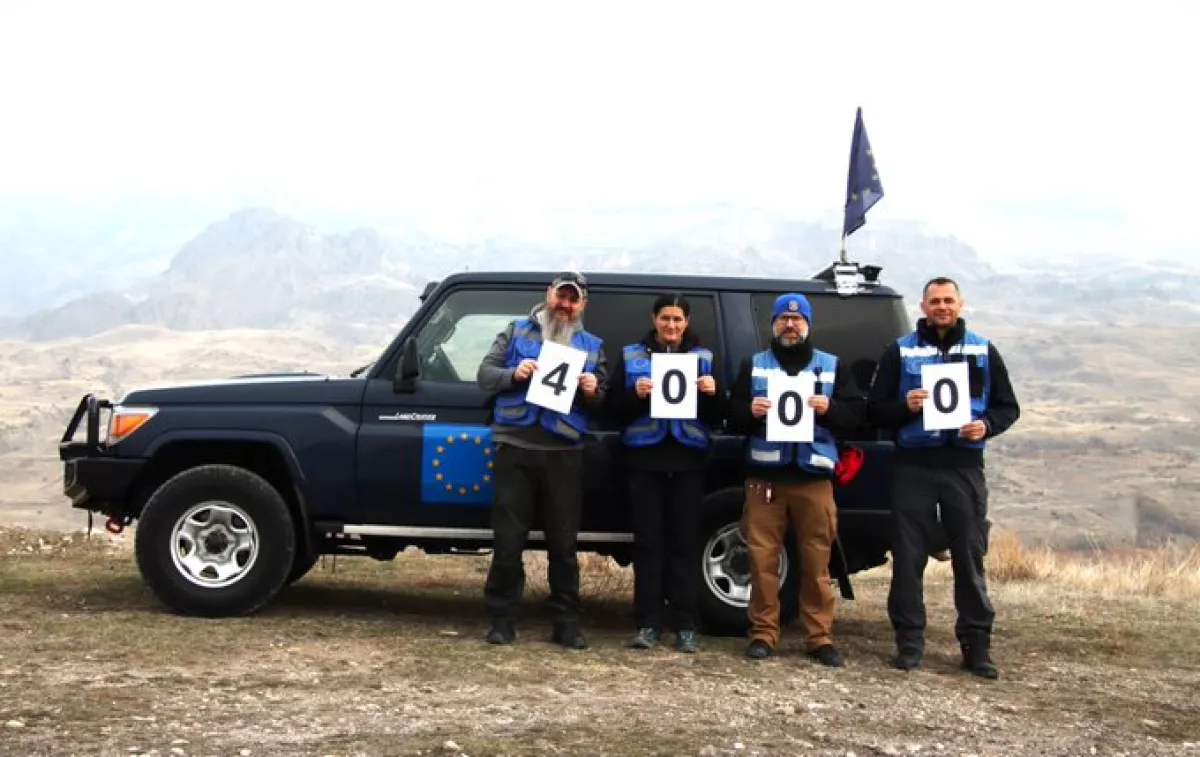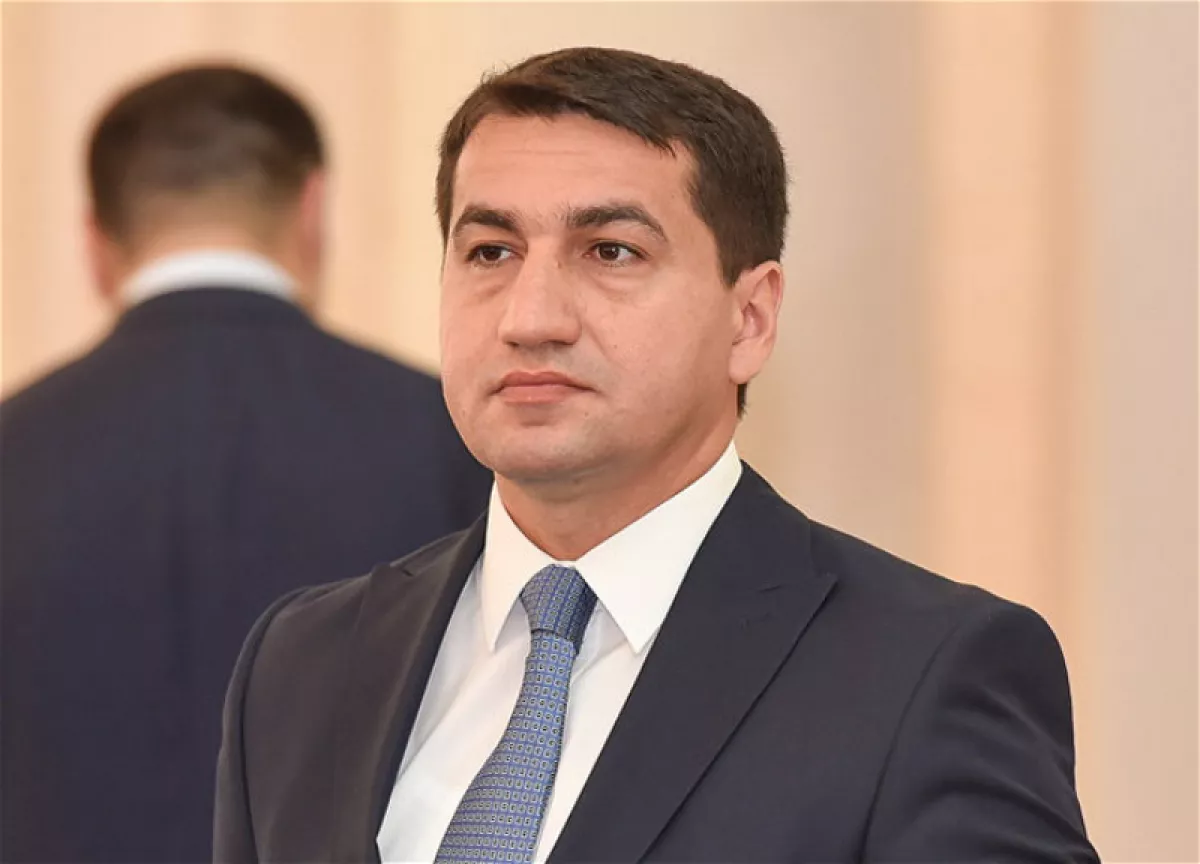The French impasse in Yerevan Diplomacy and militarization in tandem
While Armenia speaks of peace, its actions suggest preparations for another war. Recent events, along with trends from the past few years, point squarely in this direction. These include frequent provocations along the de facto border—essentially reconnaissance-in-force—special agreements with the U.S. and EU for military aid, and a steady flow of weaponry from India and France.
France, in particular, has taken the lead in bolstering Armenia’s readiness for a potential attempt at revanche. The latest developments fit perfectly into this framework, driven largely by the coordinated efforts of a military-diplomatic duo: French Ambassador to Armenia Olivier Decottignies and Armenian Defense Minister Suren Papikyan.
First, the ambassador paid a visit to the EU monitoring mission in Armenia. Shortly afterward, he met with Papikyan. According to Armenia’s Ministry of Defense, the meeting addressed “agenda items related to Armenia-France cooperation in the defence sector and prospects for future cooperation.” Predictably, the agenda left little room for surprises.

Soon, the tireless French ambassador made his mark on the social network X, sharing a tweet that referenced a message from the EU monitoring mission itself, which celebrated its 4,000th patrol in Armenia. The tweet read: "Day after day, European observers patrol along the military contact line with Azerbaijan. They help to establish incidents, dispel fake news and reassure vulnerable populations in these exposed areas."
Meanwhile, a delegation led by the aforementioned Papikyan paid a visit to France.
Combining these events, it is not difficult to conclude that Paris and Yerevan are not only deepening their military cooperation but are also making a deliberate show of it. While reports about Papikyan’s activities merely state the facts, the ambassador’s tweet takes on an overtly provocative tone.
On one hand, it perpetuates the deceitful narrative that Azerbaijan allegedly threatens Armenia’s borders. On the other, it appears to challenge Baku’s demands regarding the EU monitoring mission. Azerbaijan has consistently called for the mission’s activities to be terminated.
To recall, not long ago, Hikmet Hajiyev, Assistant to the President of Azerbaijan, told journalists:
"The mission’s activities must be terminated. The decision to deploy the mission was agreed upon during the meeting in Prague between Azerbaijani President Ilham Aliyev, French President Emmanuel Macron, then-President of the European Council Charles Michel, and Armenian Prime Minister Nikol Pashinyan. At that time, the parties agreed that the mission would be temporary. However, as we can see, it has taken on a permanent character, with its composition and mandate also expanding."
Hajiyev emphasized that the process of delimitation and demarcation between Armenia and Azerbaijan is being carried out peacefully and in an atmosphere of mutual understanding, making the presence of a third party unnecessary. He added: "The EU mission is not a factor contributing to peace in the region. Peace depends on Armenia and Azerbaijan. The presence of a third party on the border only escalates tensions. Some European countries, acting under the guise of the EU mission, are pursuing their own agendas in Armenia."

Furthermore, last week, Azerbaijan's Ministry of Foreign Affairs reiterated its demand for the removal of territorial claims against Azerbaijan from the preamble of Armenia’s Constitution.
This reflects a deepening of the diplomatic deadlock amid stalled negotiations. Baku continues to press its core demands on Yerevan, while the latter, in tandem with Paris, responds with provocative gestures.
Of course, this cannot be separated from the current pre-election context in Armenia. For Pashinyan, it is crucial to demonstrate to his electorate that cooperation with the West is thriving on all fronts. This means an increase in reciprocal visits and meetings between Armenian and French officials, diplomats, and military representatives.
However, this only underscores the rapid growth of military collaboration between Yerevan and Paris rather than detracting from it.
As has been noted on multiple occasions, Yerevan continues to employ a strategy of stalling the negotiation process while simultaneously strengthening its armed forces. Baku has repeatedly warned that Armenia is preparing for a military provocation aimed at seizing a small segment of territory along the de facto border. This, in turn, seeks to achieve two objectives: first, to bolster the ruling party’s record-low approval ratings, and second, to boost public morale after the shock of their defeats in 2020 and 2023, while laying the groundwork for a future "grand revanche."
President Aliyev has consistently warned Armenia against taking such a step. Azerbaijan is closely monitoring the situation both along the de facto border and within the broader context of Armenia’s militarization. Should there be a genuine threat to Azerbaijani territory, Armenian positions will face the hammer of Azerbaijani retaliation—retribution for the threat itself.








